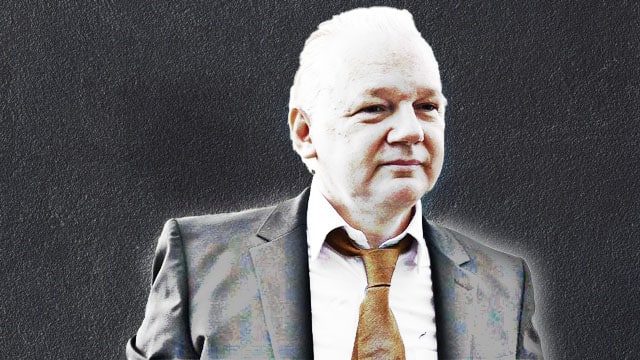Wikileaks founder Julian Assange was freed from the UK’s high-security Belmarsh prison on Monday, June 24th, after all charges, except for one of breaching United States espionage law that he agreed to plead guilty to, were dropped.
Following his release from prison, Mr Assange (52) boarded a plane from London’s Stansted Airport to the US territory of the Northern Mariana Islands in the Pacific. After he pleaded guilty and his time in jail—1,901 days—was counted as the sentence served, he was finally free to leave for Australia.
Who is Assange?
Mr Assange is an Australian journalist, the founder of Wikileaks, and played a key role in global investigative journalism. Wikileaks is a non-profit organisation, that publishes classified and sensitive documents sourced from anonymous sources disclosing US war crimes, espionage and other such sensational information.
Under Mr Assange, Wikileaks has published 10 million classified documents since its foundation in 2006, including the US embassy cables and military documents.
The Wikileaks timeline
Major leaks and international attention:
2006 – Wikileaks was founded.
April 2010 – Wikileaks published a video entitled “Collateral Murder,” documenting a US military helicopter attack in Baghdad that killed two Reuters journalists as well as several other Iraqi civilians.
July 2010 – Wikileaks released classified US military documents that compromised 75,000 Afgan War diaries.
October 2010 – Wikileaks released 400,000 US field reports of the Iraq War log.
November 2010 – Wikileaks started publishing the US diplomatic cables, which disclosed the controversial position of Washington on several countries and led to widespread international reactions.
The Swedish allegation
August 2010 – An arrest warrant was authorised by the Swedish Government, over an allegation of sexual assault of two women, which Mr Assange denied by saying “they are politically motivated”.
December 2010 – Mr Assange was arrested by a European warrant by Sweden in the UK. Later granted bail while fighting extradition.
Asylum in Ecuador Embassy
June 2012 – Mr Assange sought asylum at the Ecuador Embassy in London after getting rejected for the appeal against extradition to Sweden, concerned that he would be extradited to the US for his activities.
August 2012 – Ecuador granted Mr Assange asylum, thereby triggering a seven-year standoff with British authorities, who maintained an eye on Mr Assange to arrest as soon as he stepped out.
UN ruling
February 2016 -The United Nations ruled Mr Assange was arbitrarily detained and should be allowed to walk free. Furthermore, the UK and Sweden rejected the ruling.
Swedish investigation dropped
May 2017 – The Swedish prosecutor dropped the charges of sexual assault against Mr Assange
Arrest and US charges
April 2019 – After far-right, pro-West Lenin Morena rose to power, Ecuador revoked Mr Assange’s asylum and he was arrested by the UK police on charges of skipping bail. Subsequently, the US unsealed an indictment charging Mr Assange with conspiracy to commit computer intrusion, related to WikiLeaks’ 2010 releases.
May 2019 – Mr Assange was sentenced to 50 weeks of jail in the UK for breaching bail.
May 2019 – The US Department of Justice pressed 17 additional charges under the Espionage Act, leading to an extended jail sentence.
Extradition
September 2020 – Mr Assange’s extradition hearing started at Old Bailey, London. The defence argued Mr Assange was prosecuted for political reasons and his mental health will be at risk if extended extradition.
January 2021 – A UK judge ruled against the extradition, acknowledging concern over Mr Assange’s mental health and risk of suicide in jail but the judge did not dismiss the case as it met the criteria of extradition.
December 2021 – The US government won an appeal, giving them the authority to challenge the extradition.
Ongoing battle
June 2022 – The UK government allowed Mr Assange’s extradition to the US government but his lawyer fought his appeal.
2023 – Mr Assange remained in jail at Belmarsh Prison in the UK, waiting for his appeal against extradition to pass.
24 June 2024 – Mr Assange is released from prison on bail and boarded a flight to the US.
“Julian’s freedom is our freedom”
Wikileaks
In a tweet, Wikileaks stated, “This is the result of a global campaign that spanned grass-roots organisers, press freedom campaigners, legislators and leaders from across the political spectrum, all the way to the United Nations. This created the space for a long period of negotiations with the US Department of Justice, leading to a deal that has not yet been formally finalised.”
“Julian’s freedom is our freedom,” Wikileaks signed off the tweet saying, highlighting the years of campaigns run by hundreds of thousands of people around the world.
Mr Assange’s release and return to home has been welcomed by Australia, as well as the opponents of the US, like Russia.
However, his pleading guilty has raised doubts over the US’s expansive jurisdiction worldwide. Although Mr Assange is an Australian citizen, he was held in a 2×3 metre cell for five years and remained in a semi-imprisoned state in the Ecuador embassy for seven years because he broke American laws in a different country.
His imprisonment showed that the US’s legal jurisdiction has been expanding to sovereign states like Britain.
Speaking on the issue, Robert F Kennedy Jr, who is running for the president’s post in the US as an independent, tweeted, “The bad news is that he had to plea guilty to conspiracy to obtain and disclose national defense info. Which means the US security state succeeded in criminalizing journalism and extending their jurisdiction globally to non-citizens (sic).”
While Mr Assange returns home, a question looms large over independent journalists and media houses—are they really safe from American persecution, even when they are far from the US?

